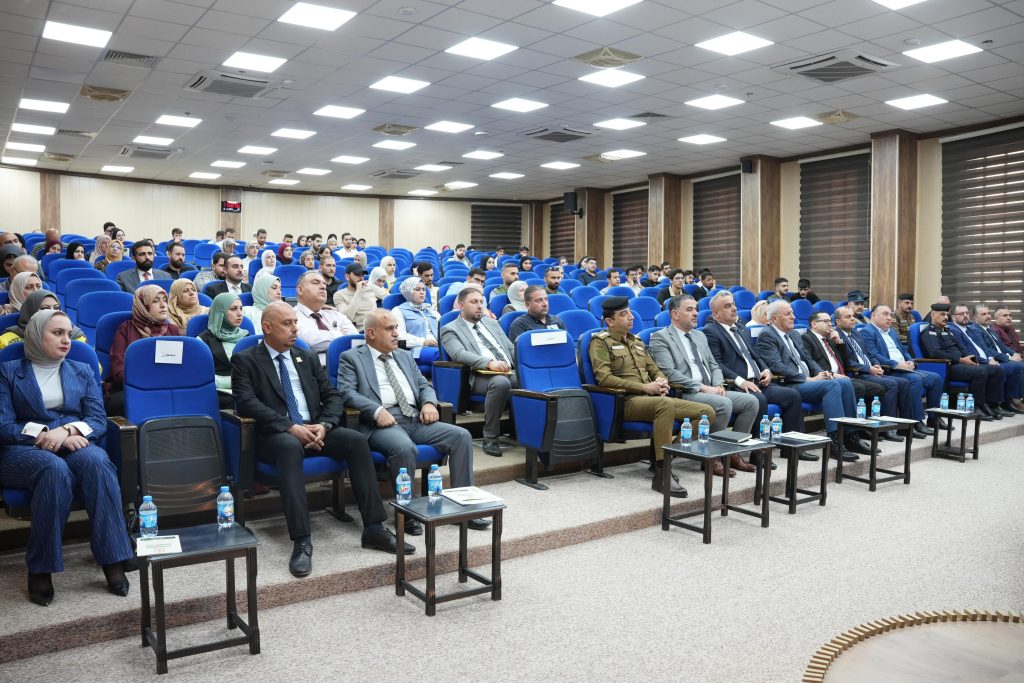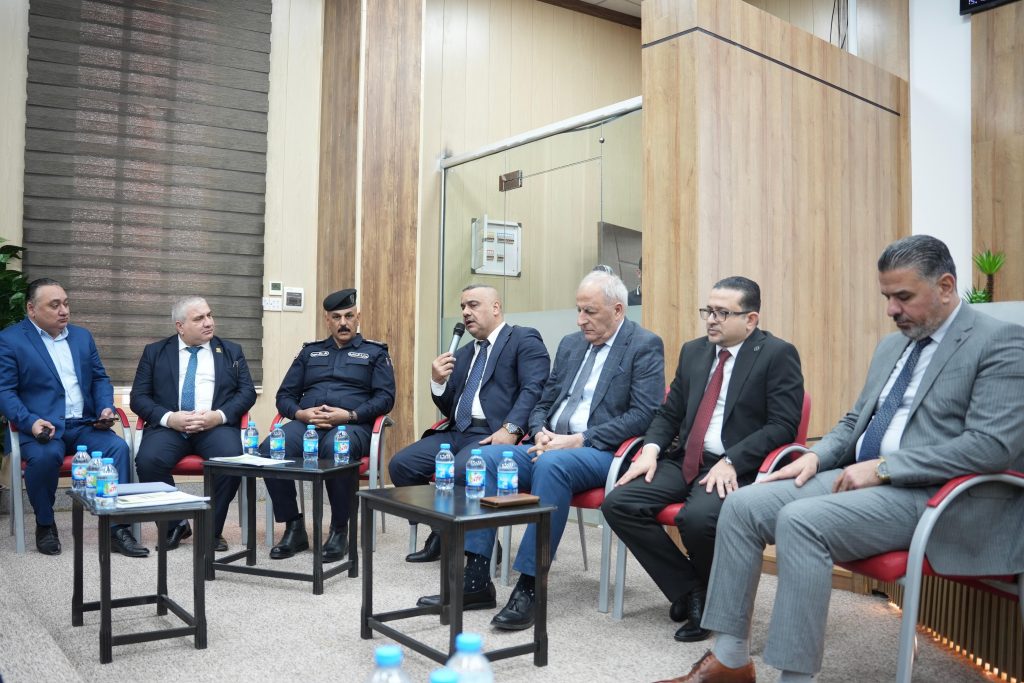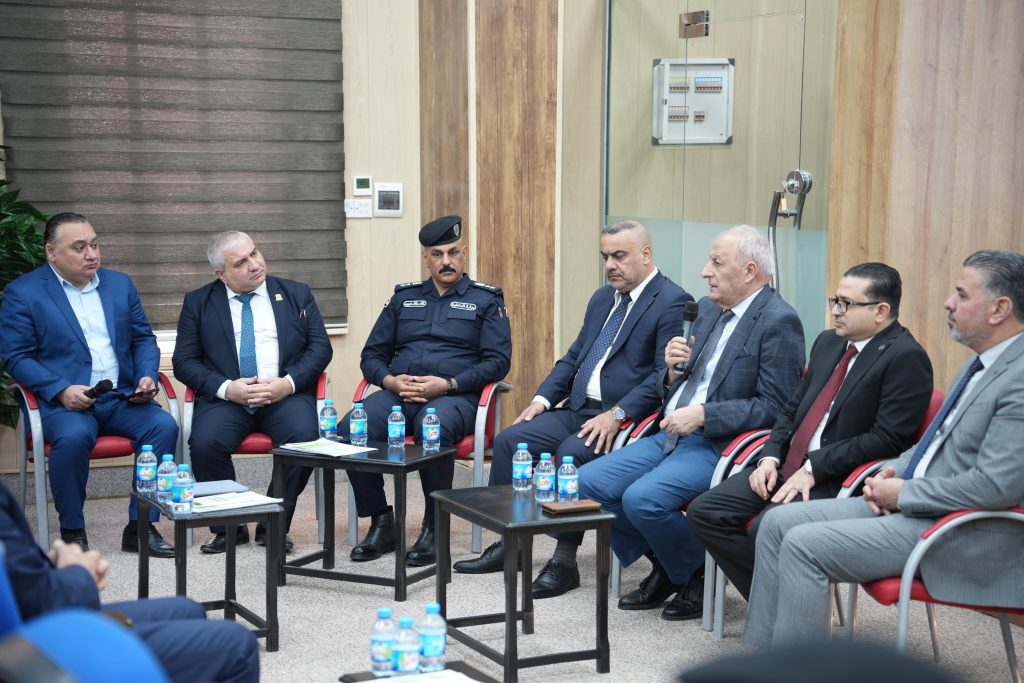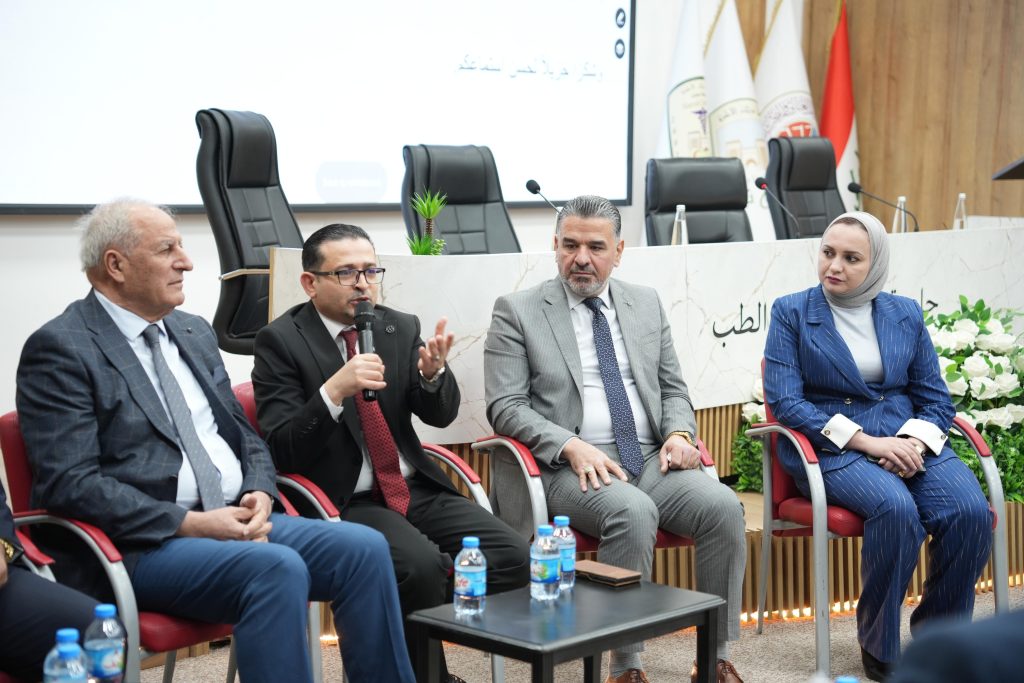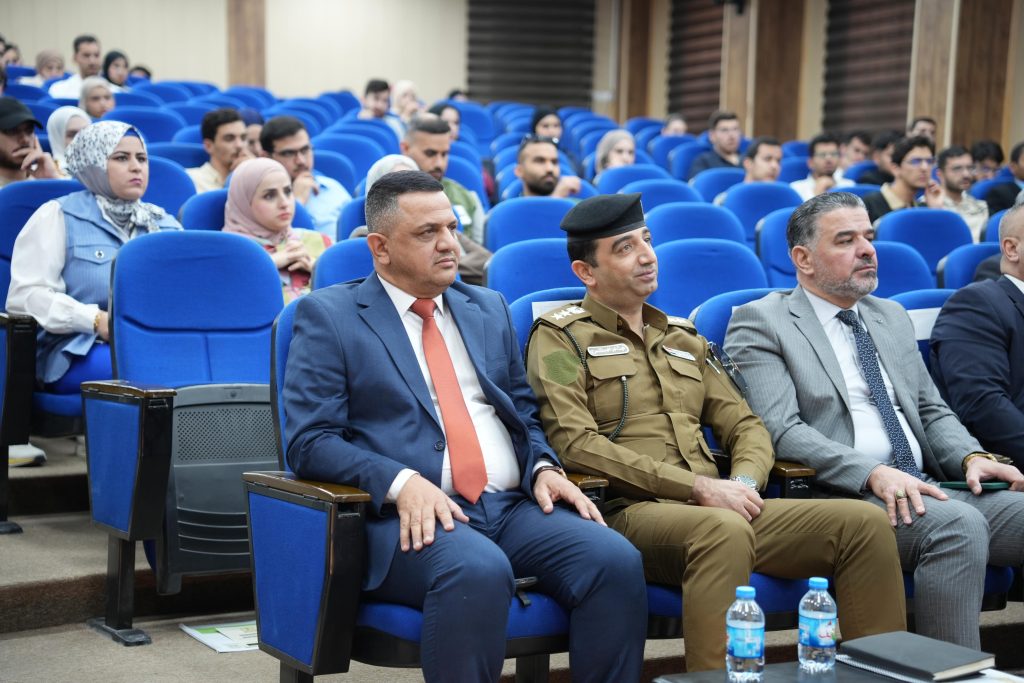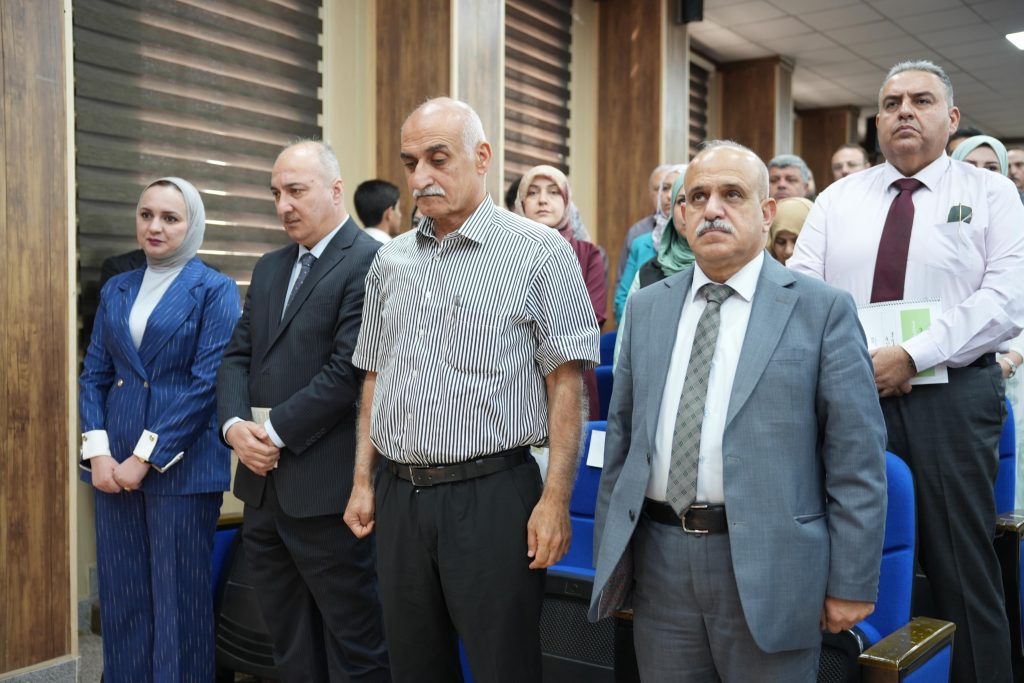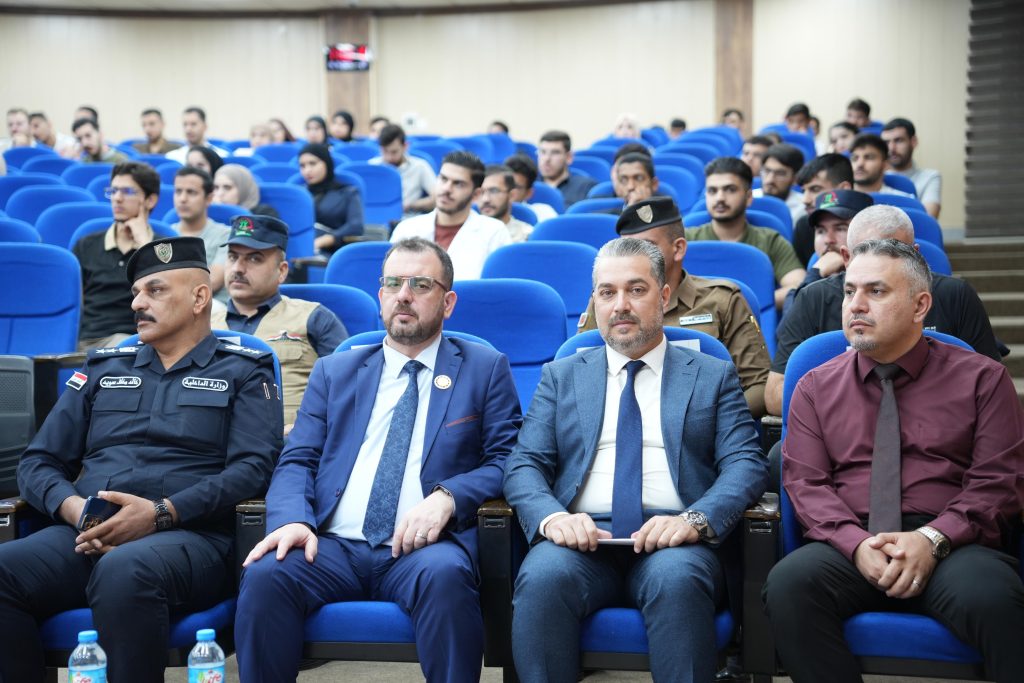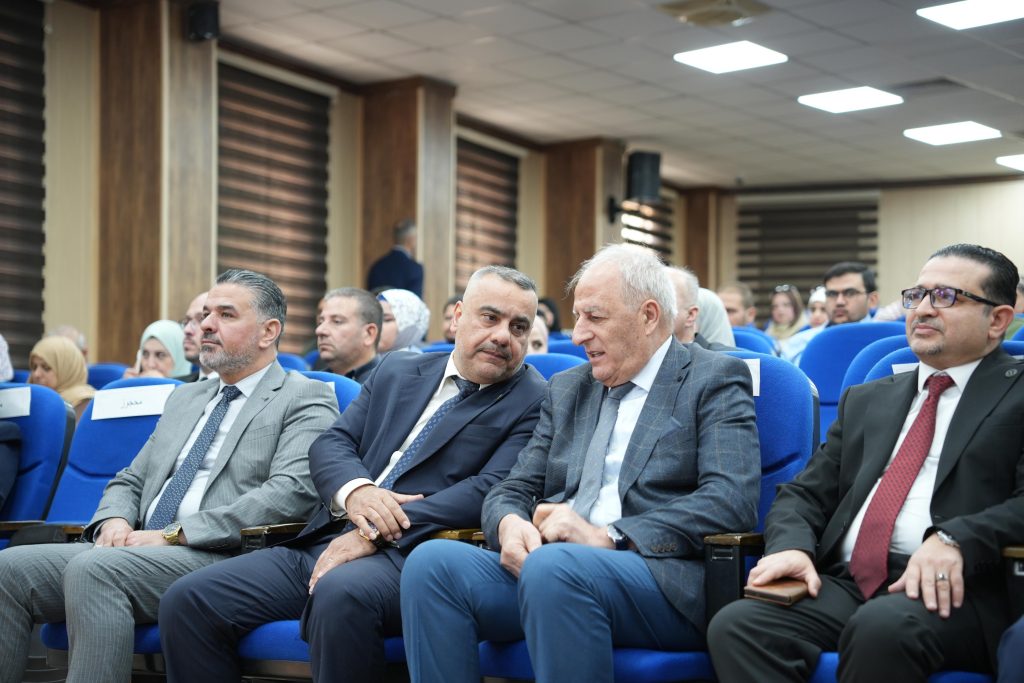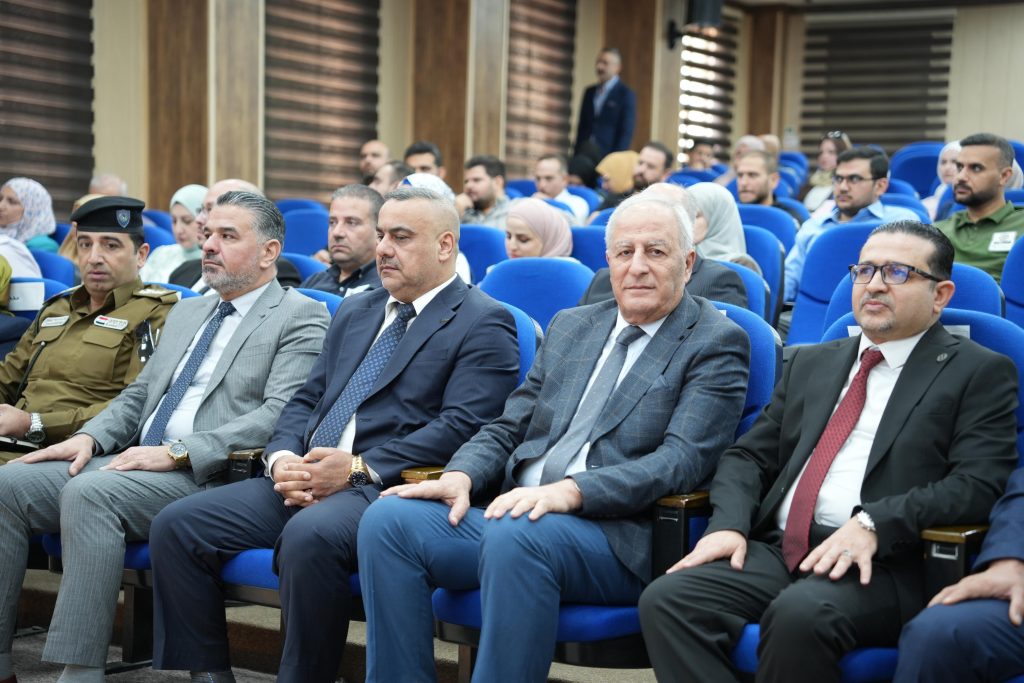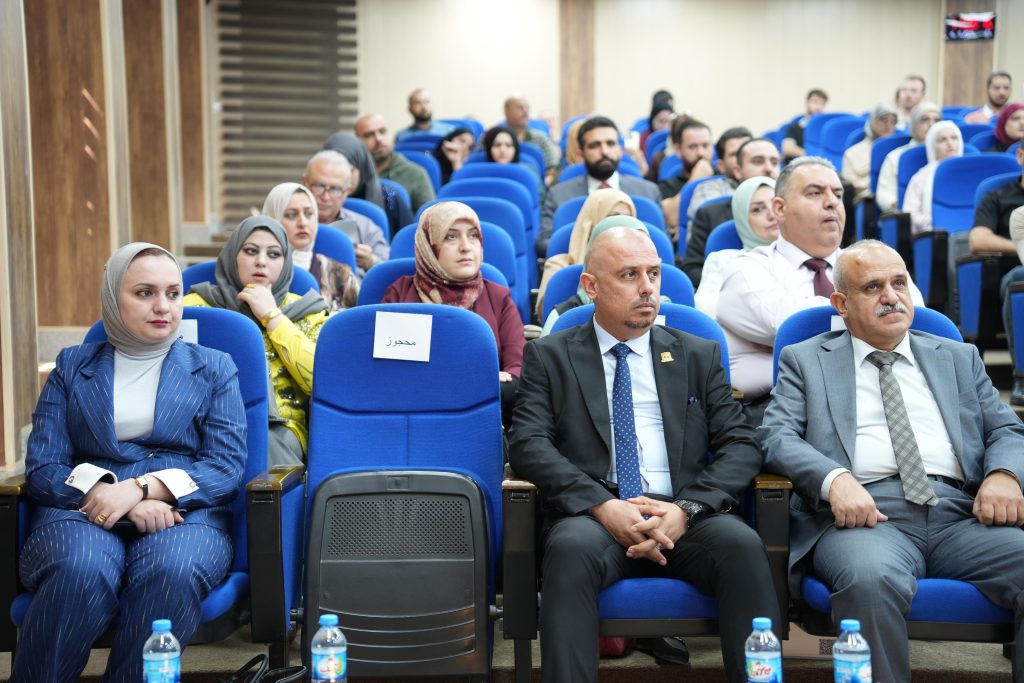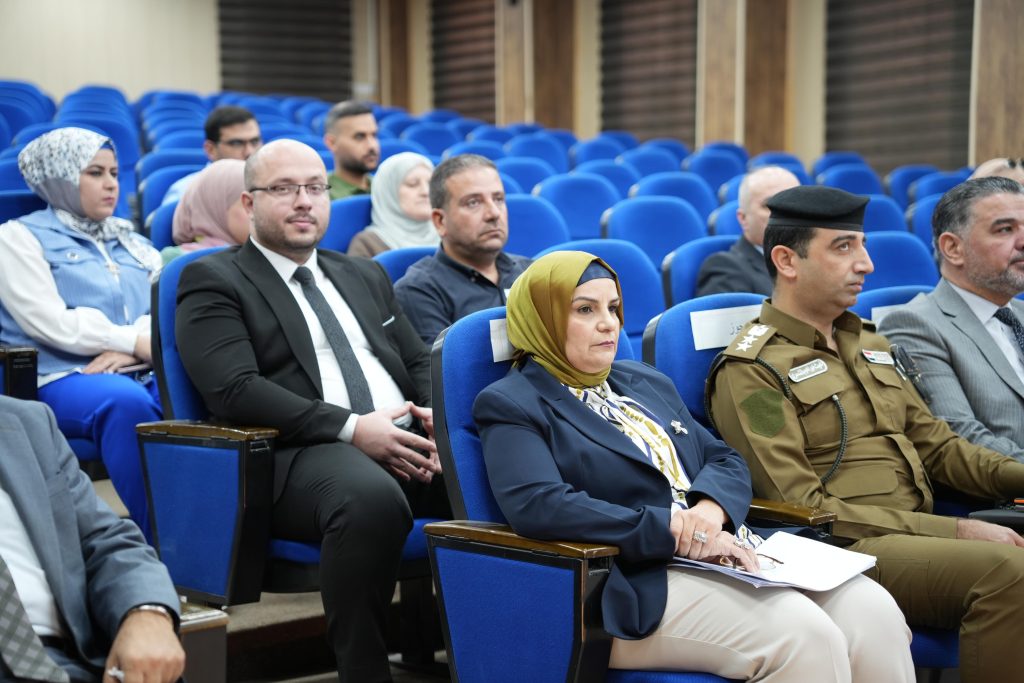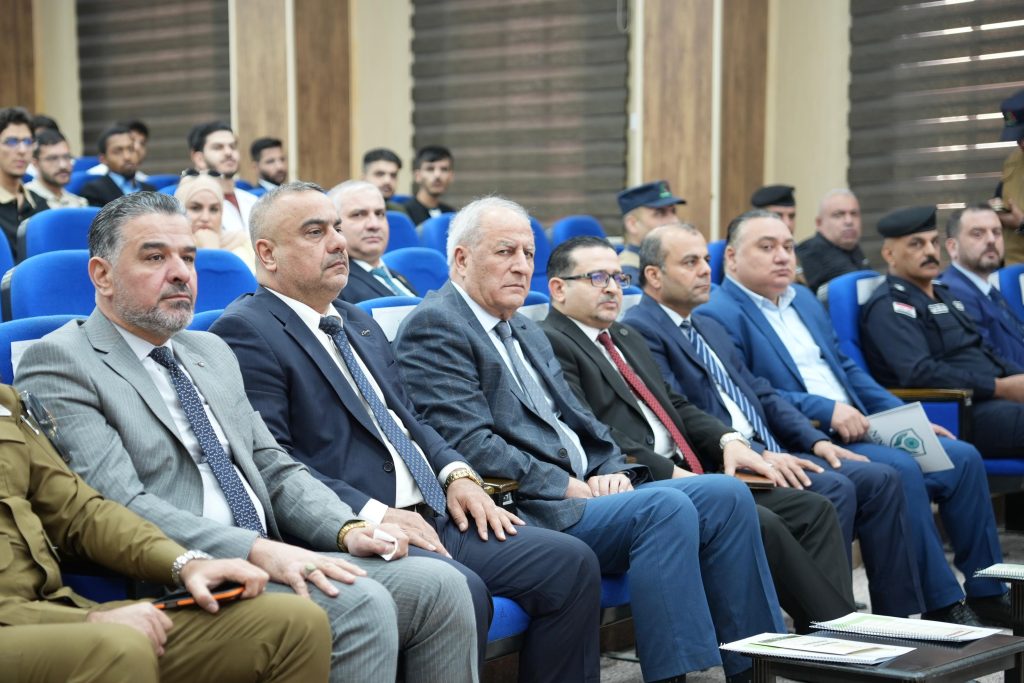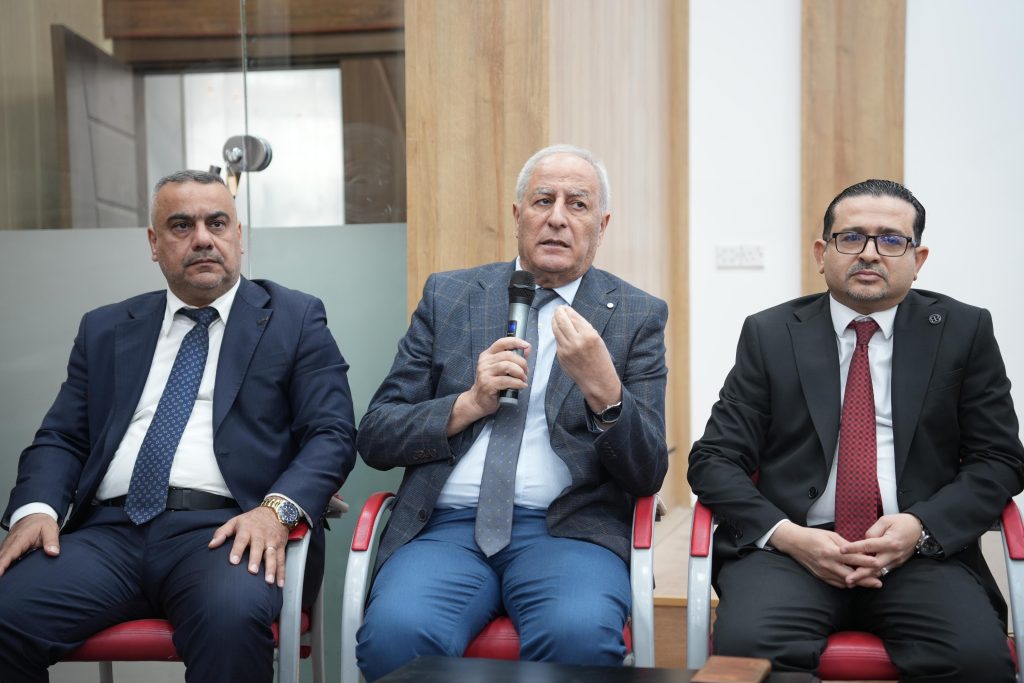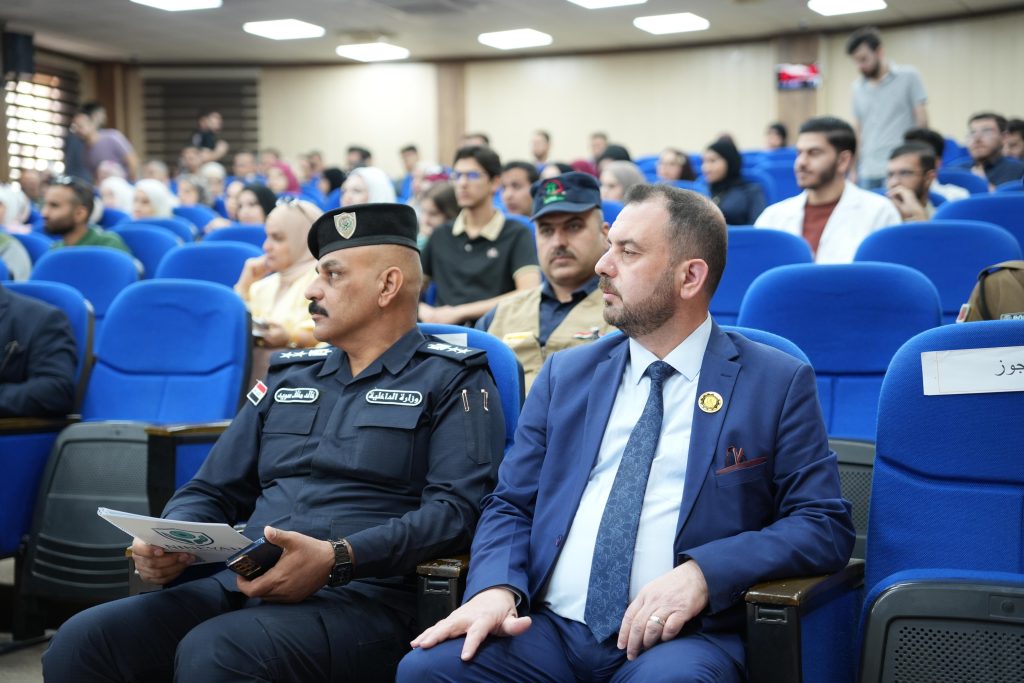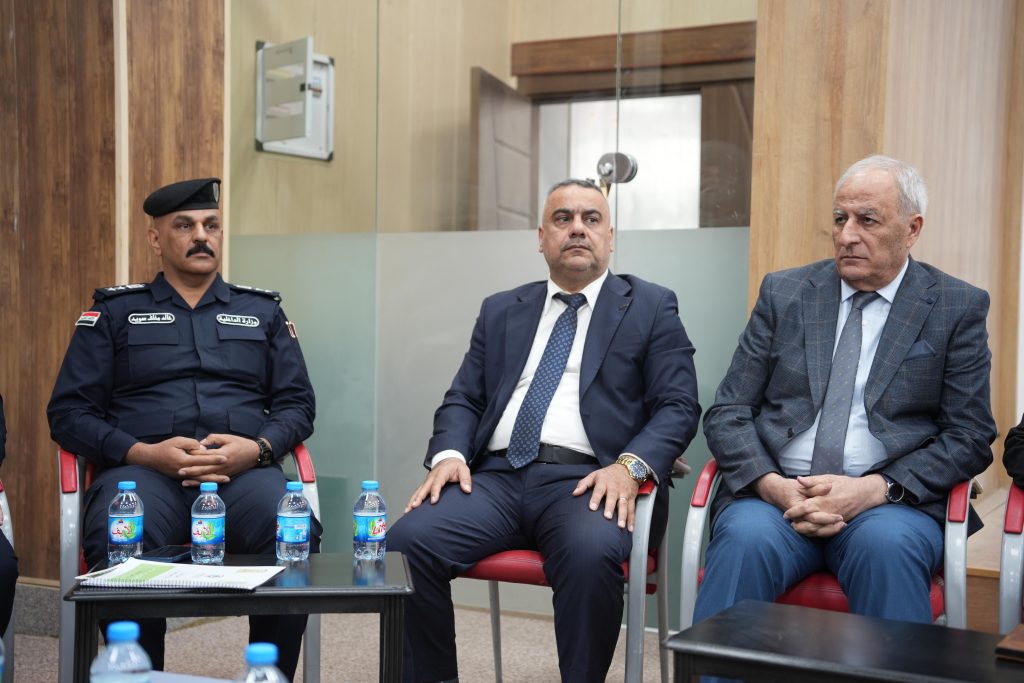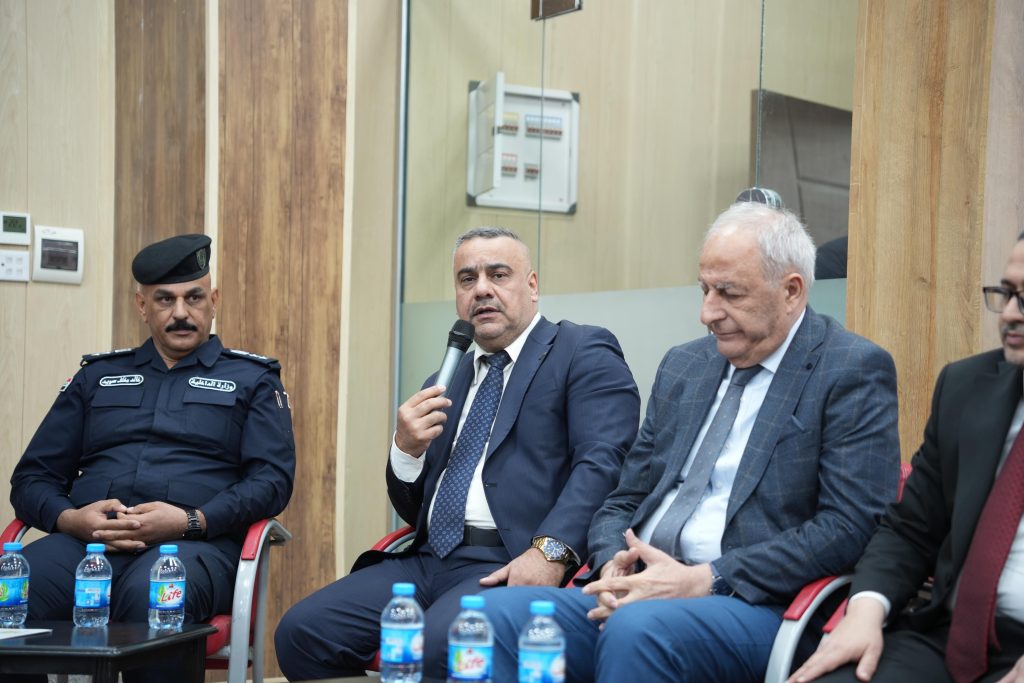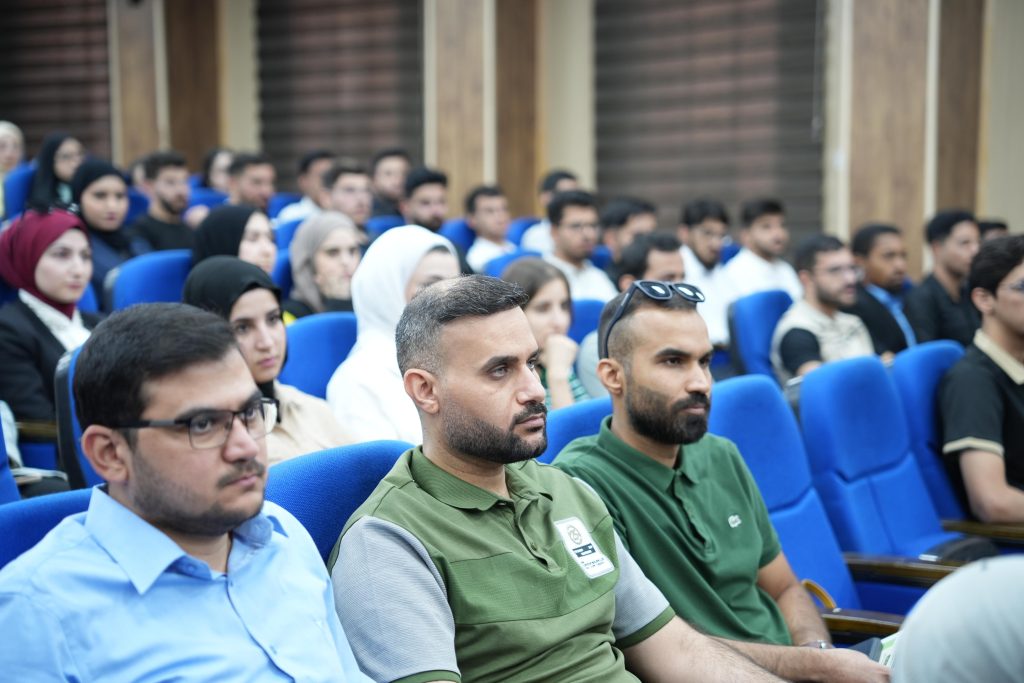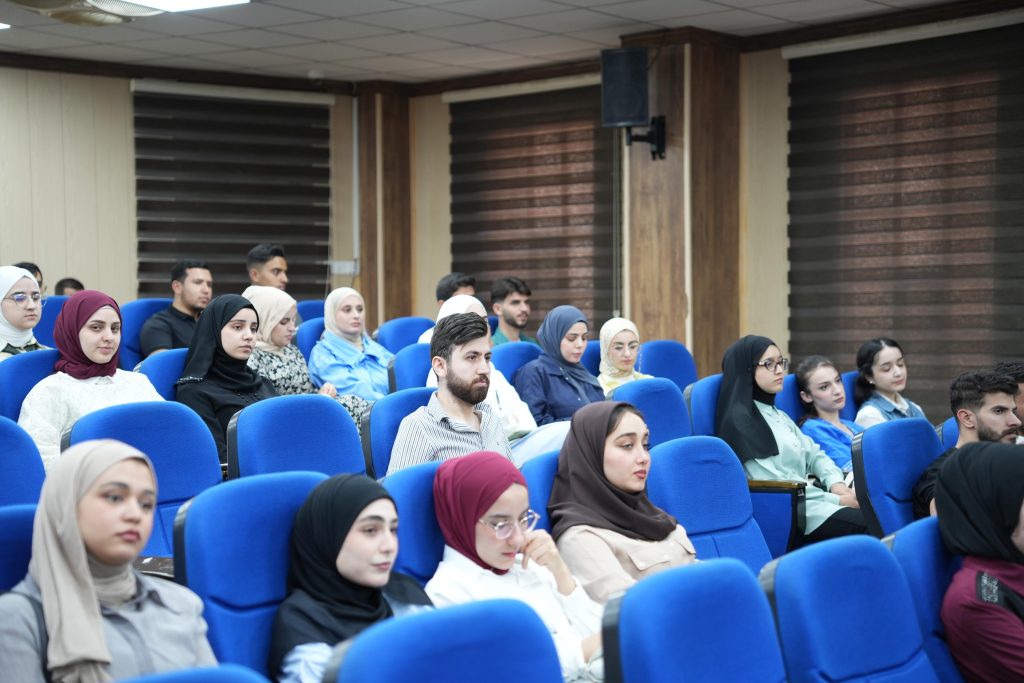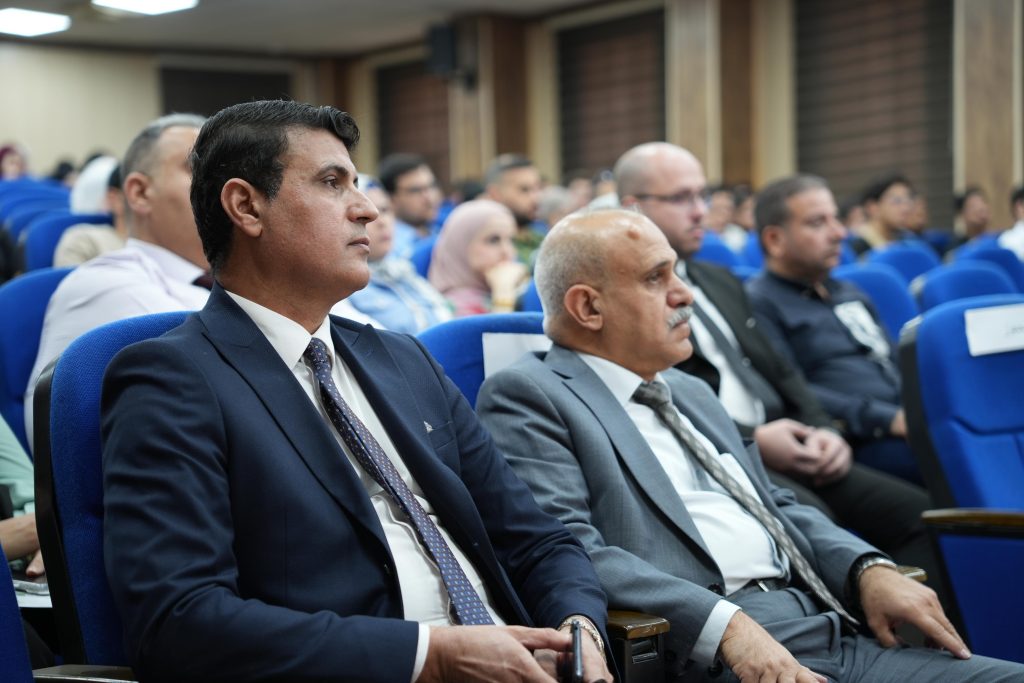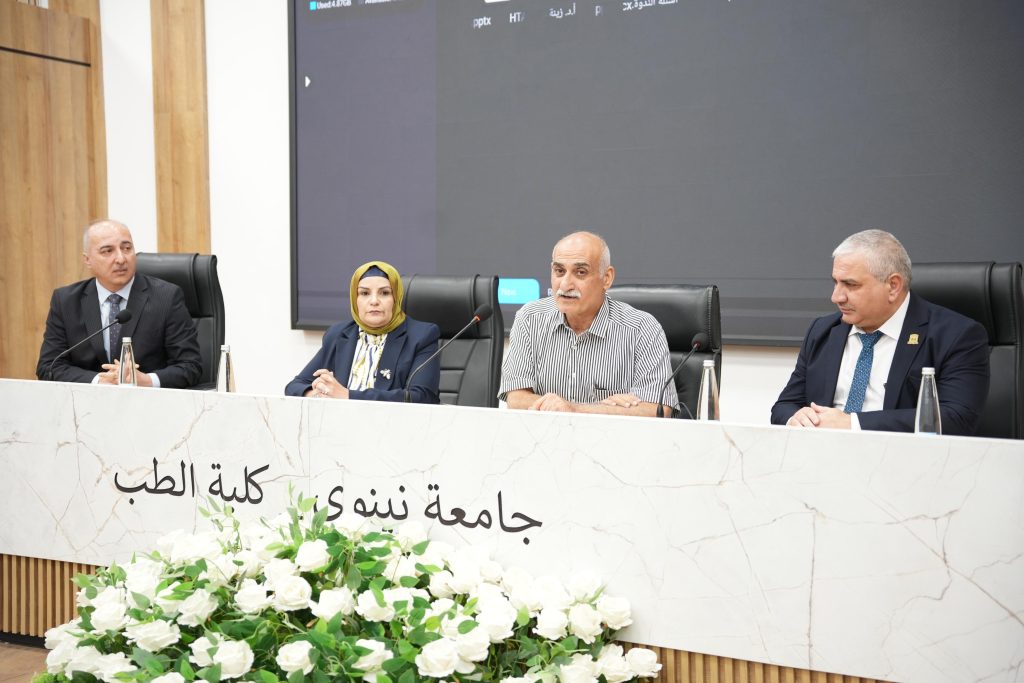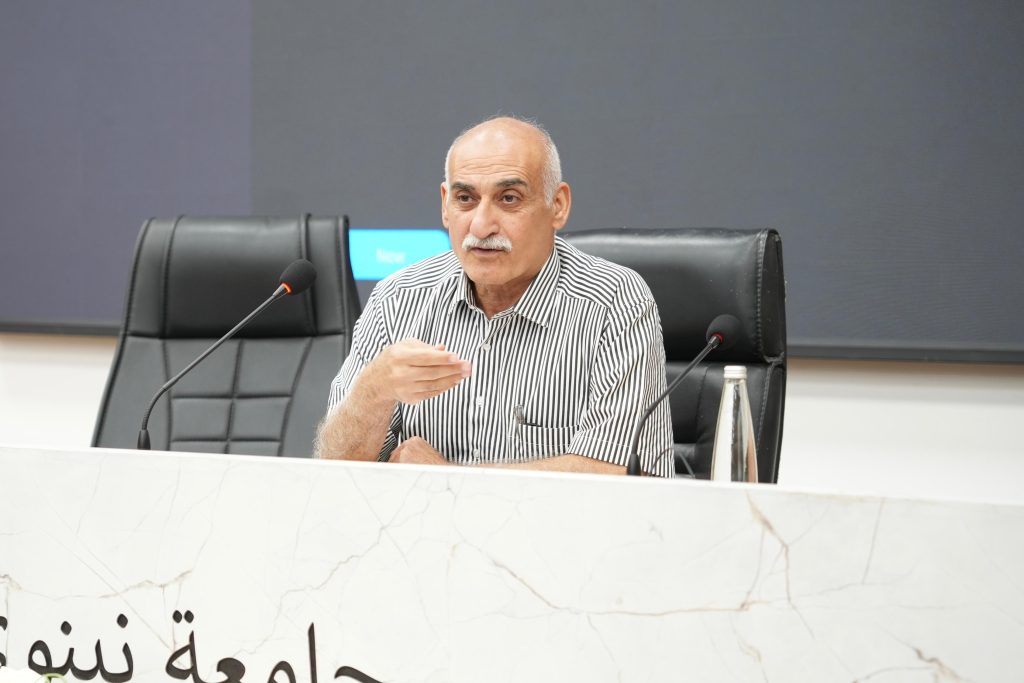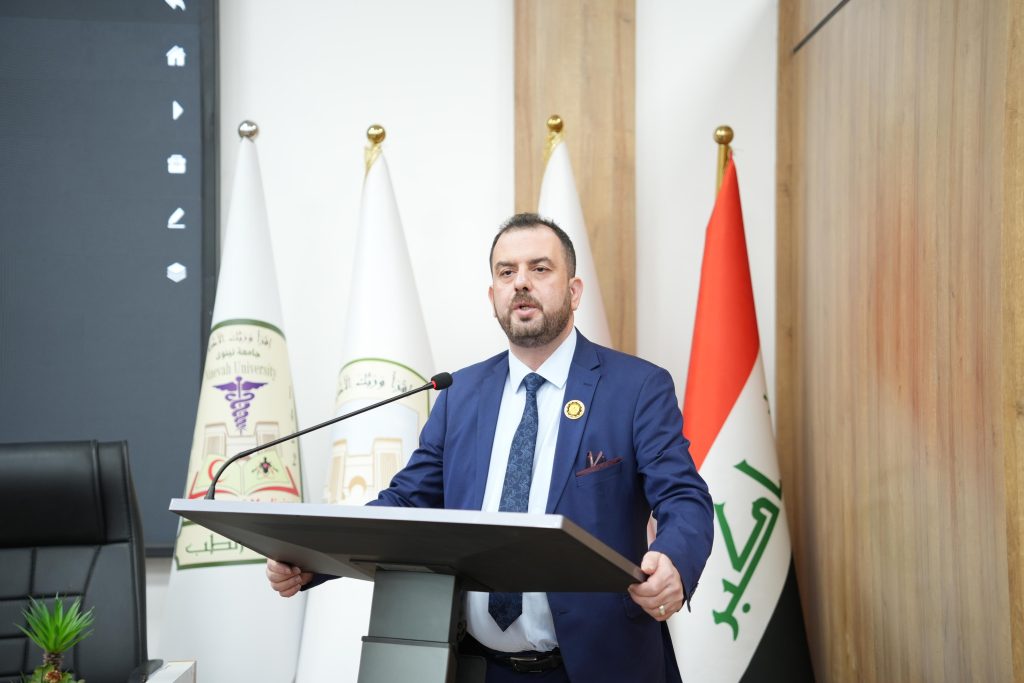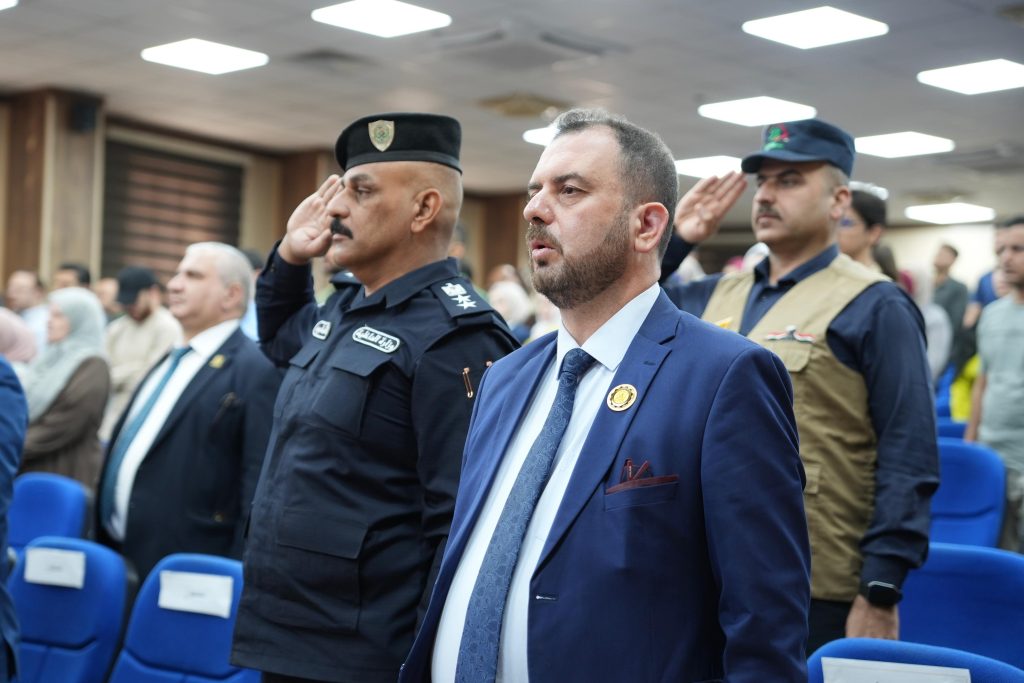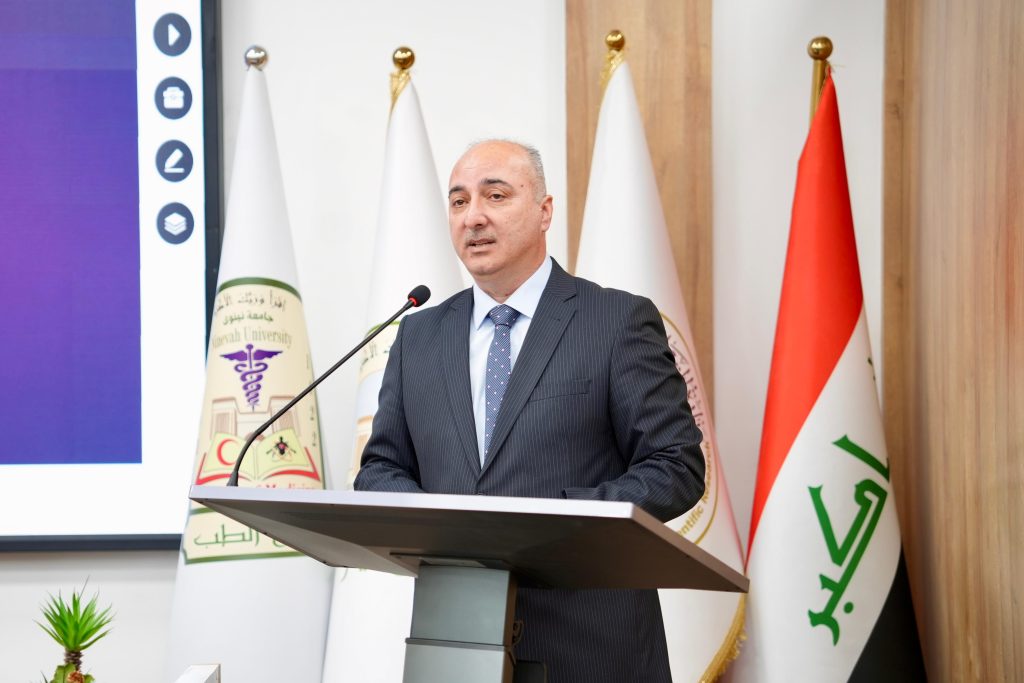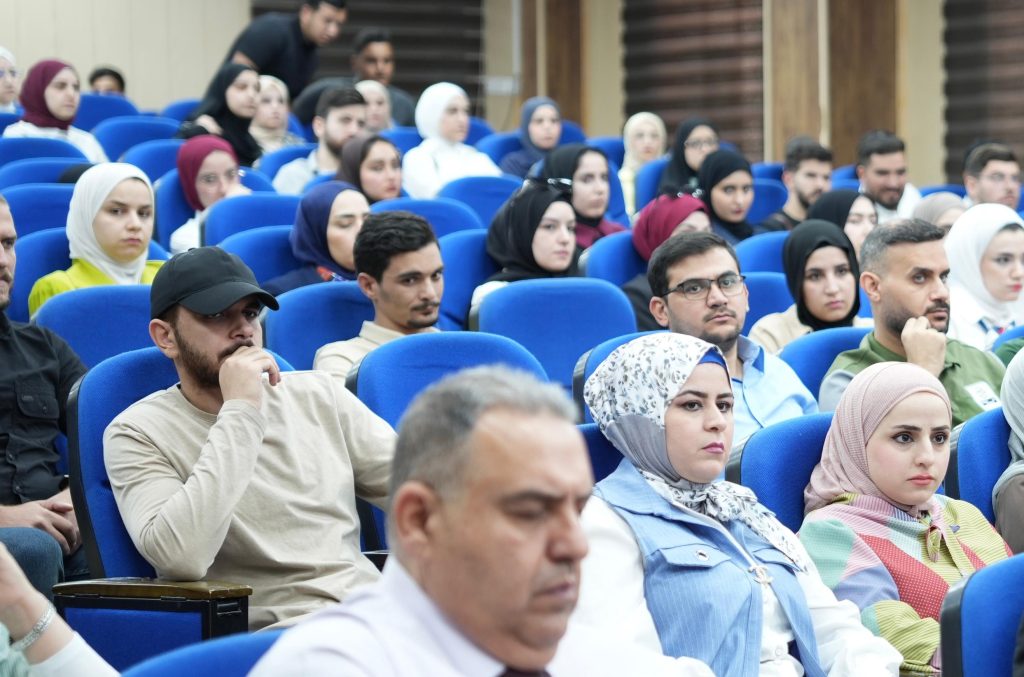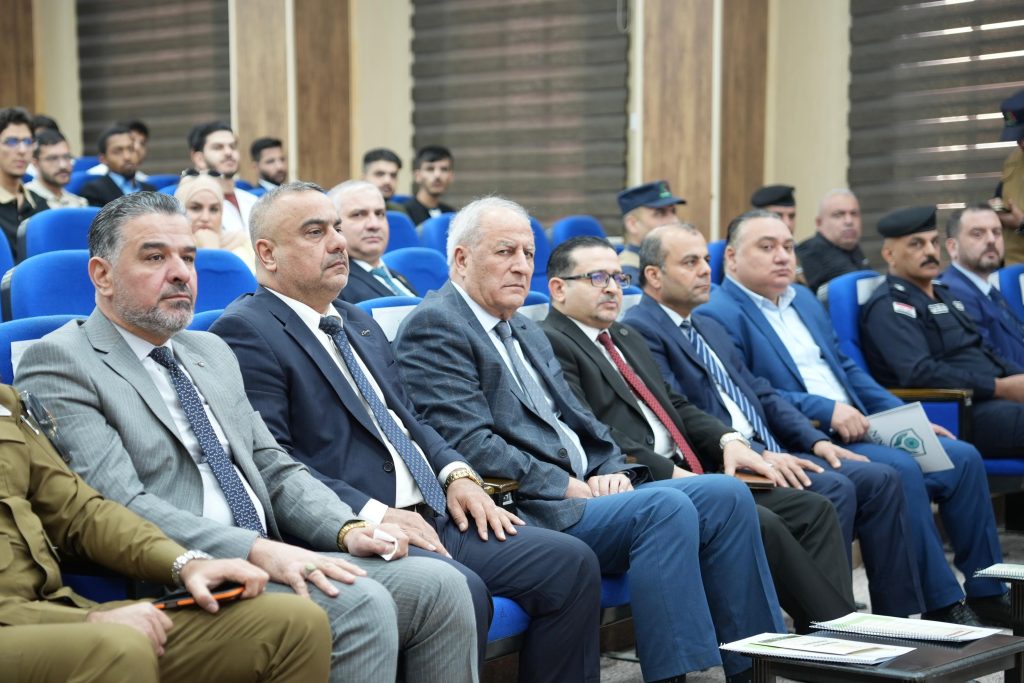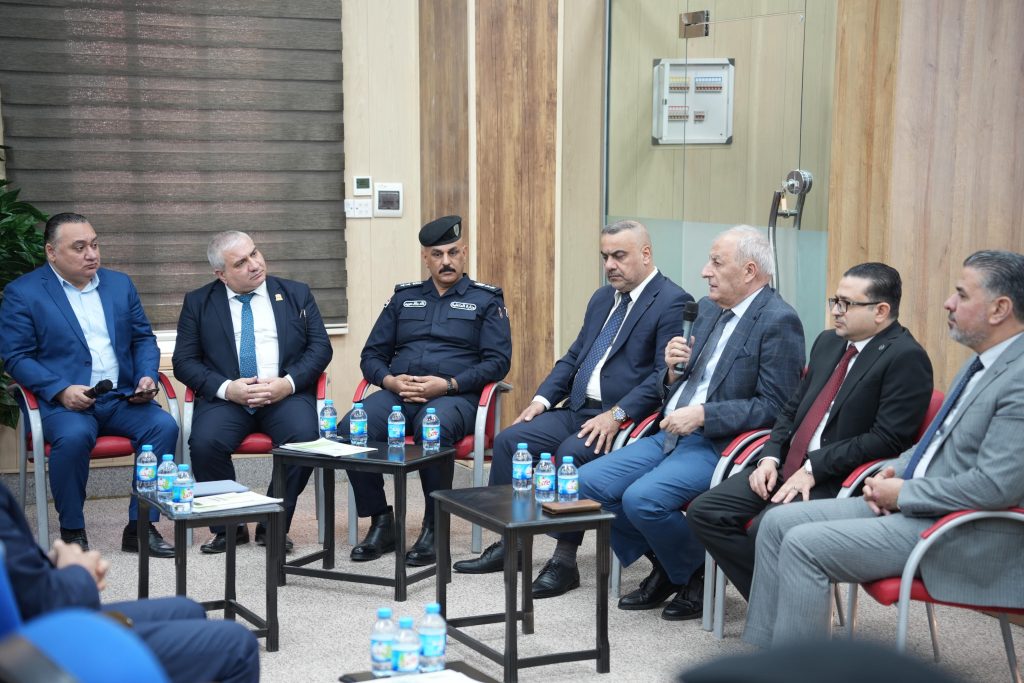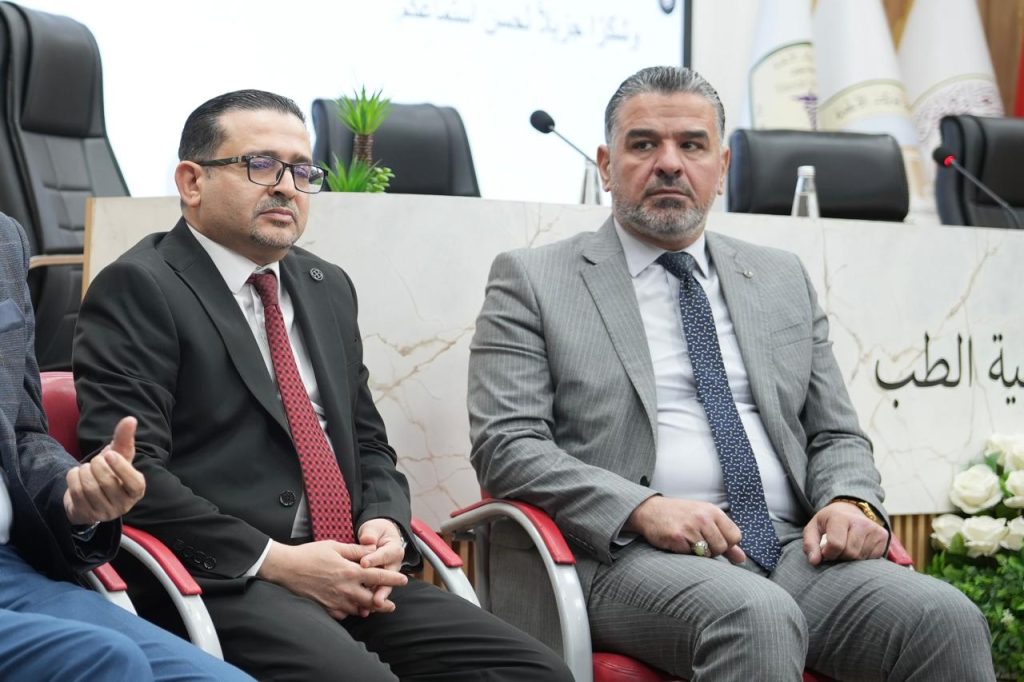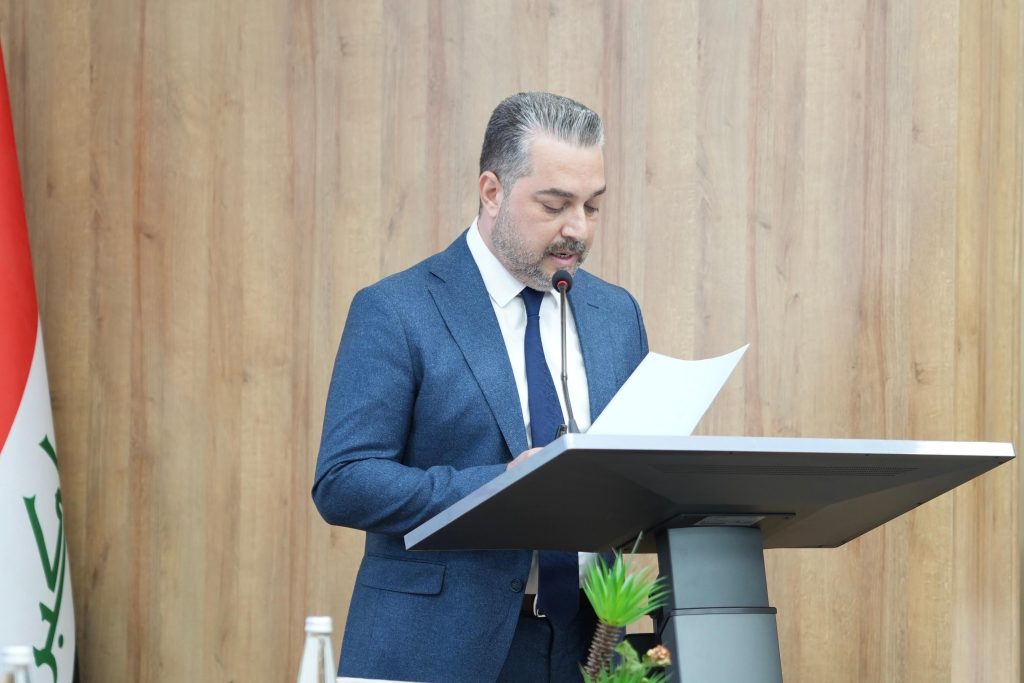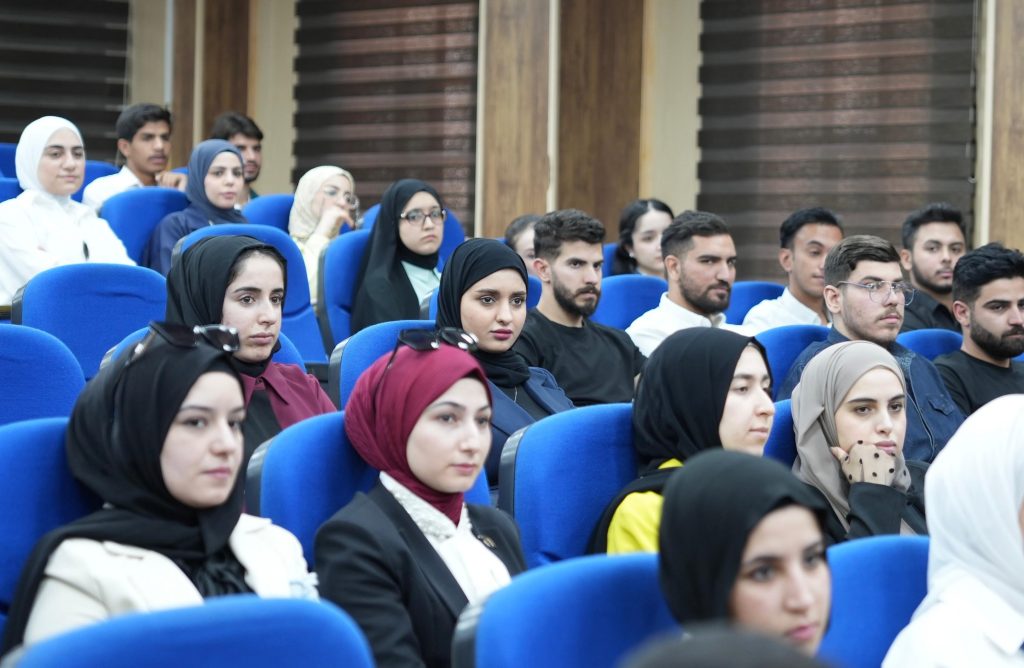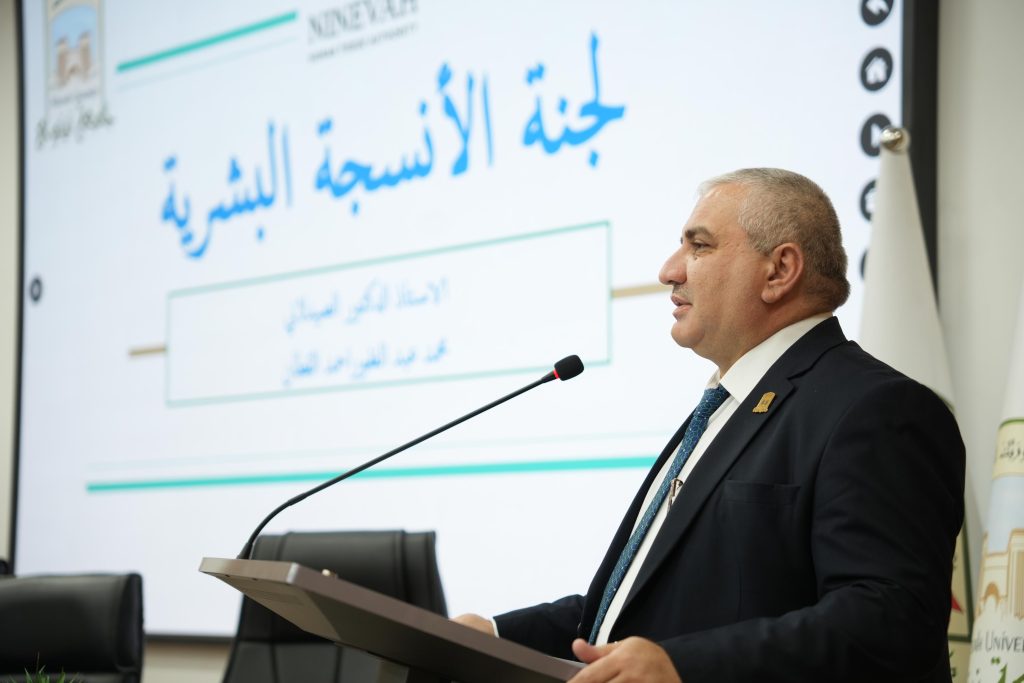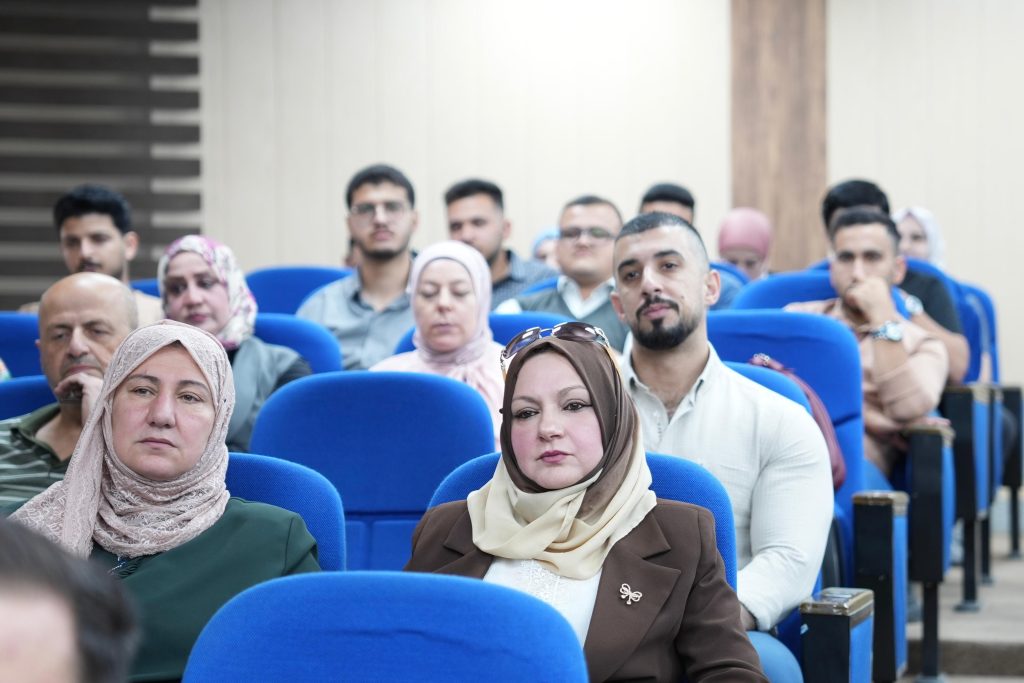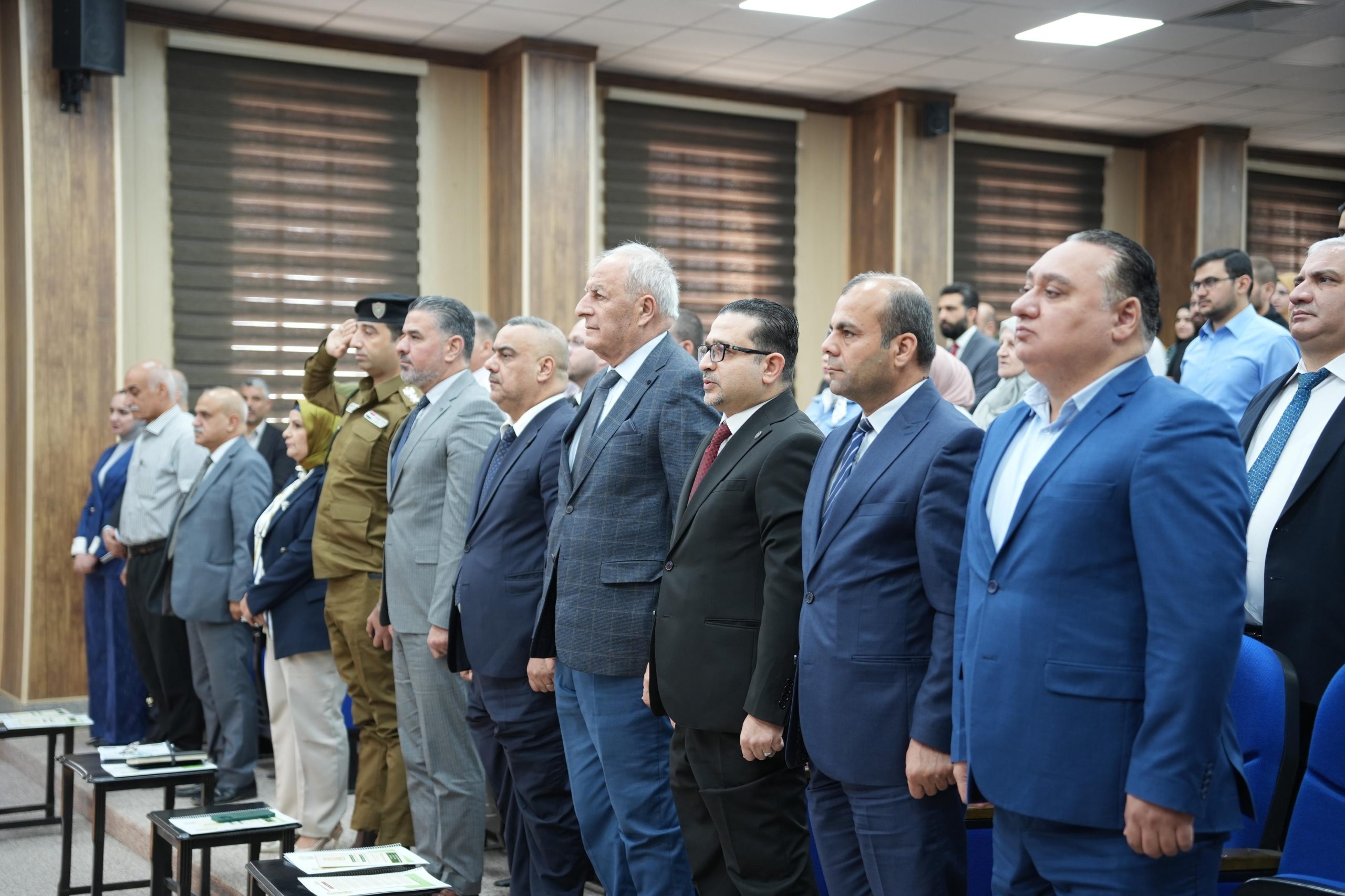Under the patronage and presence of Prof. Dr. Osama Ismail Al-Mashhadani, President of the University of Ninevah, and under the supervision of Asst. Prof. Dr. Mo’men Junaid Al-Dabooni, Dean of the College of Medicine, the College of Medicine organized a scientific symposium on Wednesday, October 15, 2025, entitled:
“Proposed Project of the Human Tissue Committee.”
The symposium was attended by Prof. Dr. Mazahim Al-Khayyat, Chairman of the Parliamentary Committee on Higher Education, as well as representatives from the Nineveh Health Directorate, the Iraqi Doctors Syndicate – Nineveh Branch, and a distinguished group of representatives from relevant security institutions.
The event began with a speech delivered on behalf of the University President by the Dean of the College of Medicine, highlighting the importance of the Human Tissue Committee Project and its vital role in saving patients’ lives through organ transplantation, in accordance with approved medical and religious regulations and laws.
The scientific session, chaired by Prof. Dr. Taha Hassan Taha, Consultant Surgeon, featured contributions from:
• Prof. Dr. Mohammed Abdulghafour (Pharmacist)
• Prof. Dr. Zeina Ghanem Al-Obaidi (Dean of the College of Law)
• Dr. Mo’taz Abduljawad Al-Aani (Surgeon)
The session discussed the medical, legal, and ethical dimensions of organ and human tissue transplantation, emphasizing the importance of protecting the rights of both patients and donors, strengthening public trust in the healthcare system, and preventing the commercial exploitation of organs. It also addressed donation and transplantation protocols and the licensing mechanisms of medical institutions involved in such procedures.
In another segment, a panel discussion moderated by journalist Jareer Mohammed and co-presented by Prof. Dr. Mohammed Abdulghafour Al-Qattan explored the necessity of enacting specific legislation regulating the work of the Human Tissue Committee, ensuring the protection of patients’ and donors’ rights and organizing coordination between medical and security authorities.
The symposium concluded with a rich discussion among participants on the mechanisms for implementing the proposed project and produced several key recommendations, including:
1. The need to legislate a law regulating the work of the Human Tissue Committee in coordination with relevant ministries and institutions.
2. Organizing the donation of human organs and tissues within legal and religious frameworks.
3. Preventing illegal trade in human organs and enhancing medical and legal oversight in this field.
4. Holding future expanded symposia in partnership with relevant government institutions to develop a comprehensive law for this vital project.
